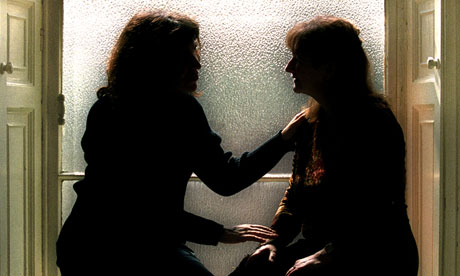
In Ireland, children of forced adoptions struggle to find their birth parents. Ireland has a history of devout Catholicism, and in the 20th century, mostly due to the Catholic Church’s tie with social services programs, children of unwed pregnant women were sent to homes to give birth and forced to give their babies up for adoption. Sometimes birth certificates were forged to say that the adoptive parents were actually the birth parents.
Today, the law still reflects the secrecy that the Catholic Church wanted to retain for the mothers. In 1998, a Supreme Court ruling said that before opening an adopted person’s birth files, the mother must be consulted, emphasizing the importance of the mother’s privacy. This ruling is incompatible with international law, which says that children should be able to know their birth parents and trace their identity.
Catherine Droogan, age 40, a victim of the state’s reluctance to give her information says “When I was younger I thought someday there will be this big reunion. As I got older, I got a bit of sense. But just to know who I am is my biggest want. That’s what really bugs me, that I can’t know the simple things,”
Frances Fitzgerald, the Minister for Children and Youth Affairs, is in the process of working on a solution for Ms. Droogan. Fitzgerald is working on legislation that would formalize the process of accessing records and tracing. The law will have to comport with the 1998 Supreme Court ruling as well.
It seems that even with the consent of the mother, the State has a reluctance to formalize this process, still holding on to its past and virtues of secrecy tied to the Church. Do you think that new legislation will help people like Ms. Droogan? Do you think that as time goes on, this won’t be a problem for future adopted people in Ireland?
I think that children should be able to discover who their birth parents are. If a child does not know who his or her parents are, then he or she will never be able to discover if there is any history of medical problems that they should be aware of. I agree with the international law that children should be able to know their birth parents. Many adopted children want to know who they are and where they are from. It is a mystery to discover one’s origins. I find it sad that birth certificates would be forged to indicate that the adoptive parents were the actual birth parents. Eventually the truth will come out that the adopted parents are not the true parents and the children will feel upset. I understand the Supreme Court’s decision that the mother should be consulted first to protect the mother’s privacy. I just feel that the child has a right to the truth. However, if it is for the child’s safety to not reveal the true parents, that is another issue to consider.
I think that all adopted children have the right to meet their birth parents. That being said, the feelings of the birth parents must also be considered in the process. Ireland, although they have devout Catholic ideals should consider the effects that their current legislation has on the adopted children, regardless of the faith. I believe the court is correct in first consulting the mother before any information of her is given. Perhaps the mother has her reasons that she does not want her identity revealed; although it may be hurtful to the child if the mother knows that she will not be able to be the model of a mother that her child deserves, even when they are of age then that is the mother’s personal decision. However, if the mother does consent to her identity being reveled it is not the place of the church nor the government to hinder the mother’s attempt to get back in touch with her child.